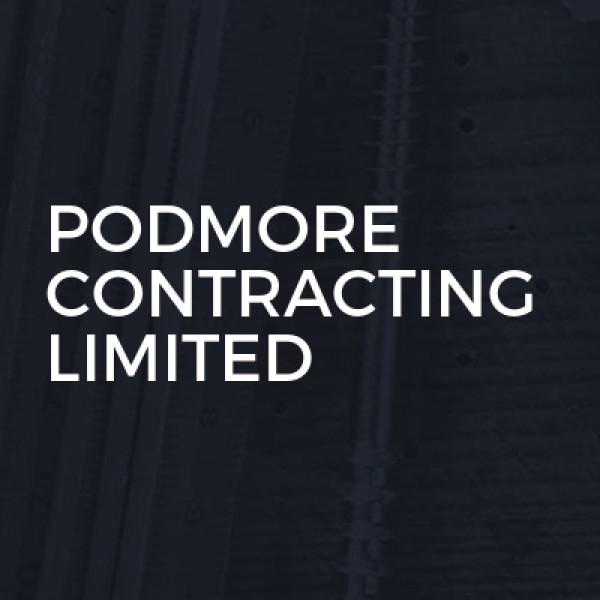Understanding Garage Conversions in Stafford
Garage conversions in Stafford have become a popular choice for homeowners looking to maximise their living space without the hassle of moving. Whether you're dreaming of a new home office, a cosy guest room, or a vibrant play area for the kids, converting your garage can be a cost-effective and efficient solution. This article will guide you through the ins and outs of garage conversions, ensuring you make informed decisions every step of the way.
The Benefits of Garage Conversions
Garage conversions offer a plethora of benefits that can significantly enhance your home and lifestyle. Firstly, they provide additional living space without the need for an extension, which can be both time-consuming and expensive. By utilising the existing structure, you can save on construction costs and avoid the complexities of planning permissions.
Moreover, a well-executed garage conversion can increase the value of your property. Potential buyers often appreciate the added functionality and versatility that a converted garage offers. Additionally, converting your garage can improve the energy efficiency of your home, as garages are typically less insulated than the rest of the house.
Cost-Effective Home Improvement
One of the most appealing aspects of garage conversions is their cost-effectiveness. Compared to building an extension, converting a garage is generally more affordable. The existing structure provides a solid foundation, reducing the need for extensive groundwork. Furthermore, many of the utilities, such as electricity and water, are already in place, which can further cut down on expenses.
Increased Property Value
Investing in a garage conversion can yield a significant return when it comes time to sell your home. By transforming an underutilised space into a functional room, you can attract a wider range of potential buyers. Whether it's a home office, an extra bedroom, or a gym, the added versatility can make your property stand out in the competitive Stafford housing market.
Planning Your Garage Conversion
Before diving into a garage conversion project, it's essential to plan carefully. Start by determining the purpose of the new space. Will it be a home office, a guest room, or perhaps a playroom for the children? Understanding the intended use will guide your design choices and ensure the space meets your needs.
Assessing Structural Integrity
Before any work begins, it's crucial to assess the structural integrity of your garage. This includes checking the foundation, walls, and roof for any signs of damage or wear. Hiring a professional surveyor can provide peace of mind and ensure that your conversion project starts on a solid footing.
Design and Layout Considerations
Once you've determined the purpose of your new space, it's time to think about the design and layout. Consider factors such as lighting, ventilation, and access. Natural light can make a significant difference in the feel of the room, so think about adding windows or skylights if possible. Additionally, ensure there's adequate ventilation to maintain a comfortable environment.
Legal Requirements and Permissions
While garage conversions in Stafford are generally straightforward, it's important to be aware of any legal requirements and permissions that may apply. In most cases, converting a garage into a habitable space falls under permitted development rights, meaning you won't need planning permission. However, there are exceptions, particularly if your property is listed or located in a conservation area.
Building Regulations Compliance
Regardless of planning permission, all garage conversions must comply with building regulations. These regulations ensure that the new space is safe, energy-efficient, and suitable for habitation. Key areas of compliance include structural integrity, fire safety, insulation, and ventilation. Working with a qualified contractor can help ensure your project meets all necessary standards.
Consulting with Local Authorities
It's always a good idea to consult with your local planning authority before starting a garage conversion. They can provide guidance on any specific requirements or restrictions that may apply to your property. Additionally, they can confirm whether your project falls under permitted development rights or if planning permission is required.
Choosing the Right Professionals
To ensure a successful garage conversion, it's essential to work with the right professionals. From architects and surveyors to builders and electricians, each plays a crucial role in bringing your vision to life. Take the time to research and select experienced professionals with a proven track record in garage conversions.
Finding a Qualified Architect
An architect can help you design a space that maximises functionality and aesthetics. They can also assist with navigating building regulations and obtaining any necessary permissions. When choosing an architect, look for someone with experience in residential projects and a portfolio that aligns with your style preferences.
Selecting a Reliable Contractor
The contractor you choose will be responsible for executing the conversion, so it's vital to select someone reliable and skilled. Ask for recommendations from friends or family, and check online reviews to gauge their reputation. Additionally, ensure they have the necessary qualifications and insurance to carry out the work safely and legally.
Designing Your New Space
With the practicalities sorted, it's time to focus on the design of your new space. This is where you can let your creativity shine and tailor the room to your specific needs and tastes. Whether you prefer a minimalist aesthetic or a cosy, eclectic vibe, the possibilities are endless.
Choosing the Right Colour Scheme
The colour scheme you choose can significantly impact the feel of the room. Light, neutral colours can make a small space feel larger and more open, while bold, vibrant hues can add personality and warmth. Consider the purpose of the room and how you want it to feel when selecting your colours.
Incorporating Functional Furniture
Furniture plays a crucial role in the functionality and comfort of your new space. Opt for pieces that are both stylish and practical, ensuring they fit well within the room's dimensions. Multi-functional furniture, such as sofa beds or storage ottomans, can be particularly useful in maximising space.
Enhancing Energy Efficiency
Energy efficiency is an important consideration in any home improvement project. By incorporating energy-efficient features into your garage conversion, you can reduce your carbon footprint and save on utility bills. This not only benefits the environment but also adds value to your property.
Insulation and Heating Solutions
Proper insulation is key to maintaining a comfortable temperature in your converted garage. Consider insulating the walls, floor, and ceiling to prevent heat loss. Additionally, explore heating options such as underfloor heating or energy-efficient radiators to keep the space warm during colder months.
Lighting and Ventilation
Good lighting and ventilation are essential for creating a pleasant and healthy living environment. Incorporate a mix of natural and artificial lighting to ensure the space is well-lit at all times. Additionally, consider installing windows or vents to promote airflow and prevent dampness.
Budgeting for Your Garage Conversion
Budgeting is a critical aspect of any home improvement project. By setting a realistic budget and sticking to it, you can ensure your garage conversion stays on track financially. Consider all potential costs, including materials, labour, and any unforeseen expenses that may arise.
Estimating Costs and Setting a Budget
Start by obtaining quotes from multiple contractors to get an idea of the overall cost. Factor in additional expenses such as design fees, permits, and furnishings. Once you have a clear understanding of the costs involved, set a budget that allows for a contingency fund to cover any unexpected expenses.
Financing Options and Considerations
If your budget is tight, explore financing options such as home improvement loans or remortgaging. Be sure to compare interest rates and terms to find the best option for your financial situation. Additionally, consider the potential increase in property value as a long-term benefit of your investment.
Frequently Asked Questions
1. Do I need planning permission for a garage conversion in Stafford?
In most cases, garage conversions fall under permitted development rights, meaning you won't need planning permission. However, it's always best to check with your local planning authority to confirm.
2. How long does a garage conversion take?
The duration of a garage conversion can vary depending on the complexity of the project. On average, it takes between 4 to 6 weeks to complete.
3. Can I convert a detached garage?
Yes, detached garages can be converted, but they may require additional considerations such as access and utilities. Consulting with a professional can help address these challenges.
4. Will a garage conversion add value to my home?
A well-executed garage conversion can increase the value of your property by providing additional living space and functionality.
5. What are the building regulations for garage conversions?
Building regulations cover areas such as structural integrity, fire safety, insulation, and ventilation. It's important to ensure your conversion complies with these standards.
6. How much does a garage conversion cost?
The cost of a garage conversion can vary depending on factors such as size, design, and materials. On average, it ranges from £5,000 to £15,000.
Garage conversions in Stafford offer a fantastic opportunity to enhance your home and lifestyle. By carefully planning and executing your project, you can create a beautiful and functional space that meets your needs and adds value to your property. Whether you're looking to create a home office, a guest room, or a play area, the possibilities are endless. Embrace the potential of your garage and transform it into a space you'll love for years to come.











